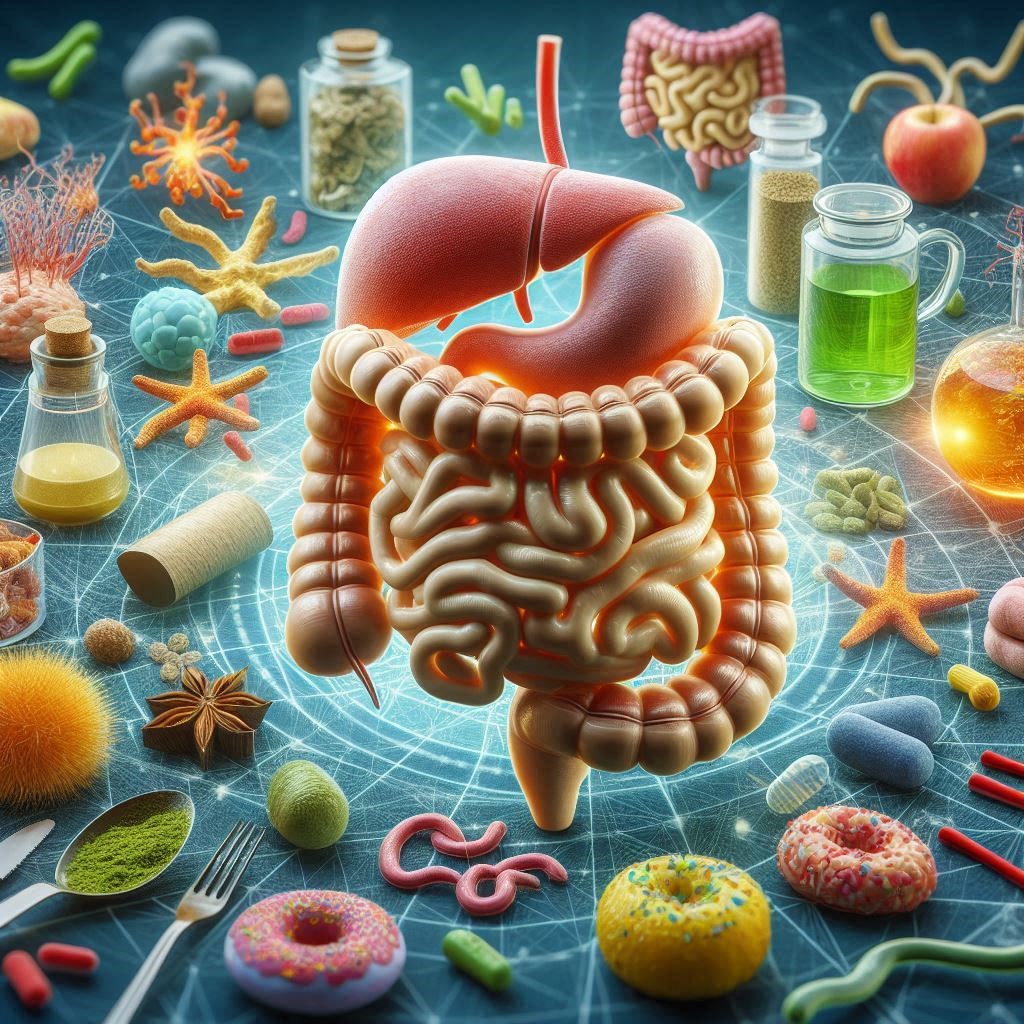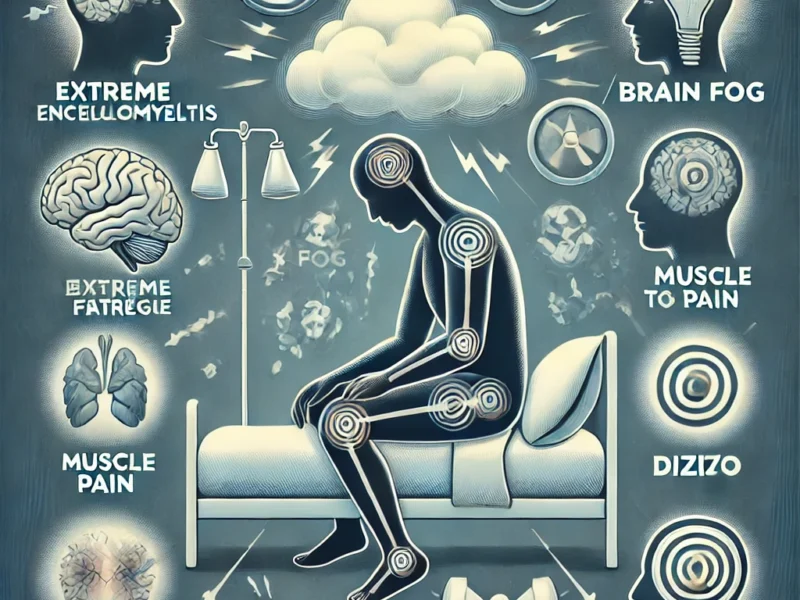
Gut Microbiota: A Key Player in Health and Disease
Introduction
The human gut microbiota, a complex ecosystem of trillions of microorganisms residing in our intestines, has emerged as a pivotal factor influencing our overall health. This dynamic community includes bacteria, viruses, fungi, and other microbes, collectively impacting digestion, immune function, and even mental health. Understanding and nurturing this intricate system is essential for maintaining optimal health.
The Composition of Gut Microbiota
The gut microbiota comprises a diverse array of microorganisms. The most abundant and studied groups include Firmicutes and Bacteroidetes, but other phyla such as Actinobacteria, Proteobacteria, and Verrucomicrobia also play significant roles. Each individual’s microbiota is unique, influenced by genetics, diet, environment, and lifestyle.
Factors Influencing Gut Microbiota
- Diet: Diet is the primary modulator of gut microbiota composition. A diet rich in fiber supports beneficial microbes, producing short-chain fatty acids (SCFAs) that nourish colon cells and reduce inflammation. Conversely, high-fat and high-sugar diets can promote harmful bacterial growth.
- Chemical Exposure: Environmental toxins, including pollutants, pesticides, and tobacco smoke, can disrupt microbiota balance. Certain medications, especially antibiotics, can deplete beneficial bacteria, leading to dysbiosis.
- Lifestyle Factors: Regular physical activity, adequate sleep, and stress management are crucial for a healthy microbiota. Chronic stress can alter gut permeability and microbiota composition, impacting overall health.
Gut Microbiota and Immune Function
The gut microbiota plays a vital role in modulating the immune system. It helps in the development and function of immune cells, and a balanced microbiota can prevent overactive immune responses, reducing the risk of allergies and autoimmune diseases. Dysbiosis, an imbalance in gut microbiota, has been linked to various inflammatory conditions, including inflammatory bowel disease (IBD) and irritable bowel syndrome (IBS).
Gut-Brain Axis
The gut-brain axis is a bidirectional communication system between the gut and the brain. The gut microbiota produces neurotransmitters and metabolites that can influence brain function and behavior. Emerging research suggests a link between gut health and mental health conditions such as depression and anxiety.
Gut Microbiota and Obesity
The relationship between gut microbiota and obesity is an area of active research. Certain bacterial profiles are associated with obesity, while others are linked to leanness. For instance, an increased ratio of Firmicutes to Bacteroidetes has been observed in obese individuals. The gut microbiota influences energy extraction from food, fat storage, and appetite regulation.
- Energy Harvesting: Some gut bacteria are more efficient at extracting energy from food. This means that even with the same caloric intake, individuals with certain microbiota profiles may absorb more calories, leading to weight gain.
- Fat Storage: Gut bacteria can influence fat storage by affecting the host’s metabolism. For example, certain microbial metabolites, such as SCFAs, can regulate fat storage and glucose homeostasis.
- Appetite Regulation: The gut microbiota can impact the production of hormones related to hunger and satiety, such as ghrelin and leptin, thereby influencing food intake and body weight.
Gut Microbiota and Metabolic Disorders
Beyond obesity, the gut microbiota is implicated in various metabolic disorders, including diabetes and metabolic syndrome. Dysbiosis can lead to systemic inflammation, insulin resistance, and impaired glucose metabolism, all of which contribute to the development of metabolic diseases.
Gut Microbiota and Chronic Diseases
The gut microbiota’s influence extends to numerous chronic diseases. Dysbiosis is associated with cardiovascular diseases, certain cancers, and neurodegenerative disorders.
- Cardiovascular Disease: Gut bacteria can metabolize dietary components, such as choline and carnitine, into trimethylamine N-oxide (TMAO), a compound linked to increased cardiovascular risk.
- Cancer: The gut microbiota can modulate cancer risk through inflammation, immune response, and the production of carcinogenic or protective metabolites.
- Neurodegenerative Disorders: Emerging research links gut dysbiosis to neurodegenerative diseases such as Alzheimer’s and Parkinson’s. The gut-brain axis plays a role in neuroinflammation and neuroprotection, suggesting that microbiota health may impact neurological outcomes.
Gut Microbiota and Skin Health
The gut-skin axis explores how gut health affects skin conditions. Dysbiosis can lead to skin issues like acne, eczema, and psoriasis through systemic inflammation and immune dysregulation. Improving gut health may alleviate these skin conditions.
Improving Gut Health
- Dietary Changes: Incorporate a diverse range of fiber-rich foods such as fruits, vegetables, whole grains, and legumes. Fermented foods like yogurt, kimchi, and sauerkraut can introduce beneficial bacteria into the gut.
- Probiotics and Prebiotics: Probiotic supplements contain live beneficial bacteria, while prebiotics are non-digestible fibers that feed these good bacteria. Both can support a healthy gut microbiota. Foods rich in prebiotics include garlic, onions, leeks, and asparagus.
- Reduce Stress: Stress management techniques like meditation, yoga, and regular exercise can positively affect gut health by reducing stress-induced microbiota imbalances.
- Avoid Long-term Use of Antibiotics: While necessary for treating infections, antibiotics can disrupt gut microbiota. Use them judiciously and consider probiotic supplements during and after antibiotic treatment to help restore balance.
- Regular Physical Activity: Exercise has been shown to positively impact gut microbiota composition. Engaging in regular physical activity can enhance the diversity and abundance of beneficial gut bacteria.
Conclusion
The gut microbiota is an essential component of our health, influencing various bodily functions and disease risks. By understanding the factors that affect it and implementing strategies to support a balanced microbiota, we can enhance our overall health and well-being. Continued research will further uncover the complex interactions within this “forgotten organ” and its profound impact on human health.
Recommended External Links
- Gut Health and Immune Function –
- The Role of Diet in Gut Health –
- Stress and Gut Health –
Further Exploration
Gut Microbiota and Mental Health
The gut microbiota’s influence on mental health is a growing field of study. The microbiota produces neurotransmitters such as serotonin, which play a role in mood regulation. Dysbiosis has been linked to mental health disorders, including depression and anxiety. Future research may uncover new treatments for these conditions based on modulating gut bacteria.
Personalized Nutrition and Gut Microbiota
Emerging technologies aim to personalize nutrition based on individual microbiota profiles. By understanding the unique composition of one’s gut microbiota, dietary recommendations can be tailored to promote beneficial bacteria and improve health outcomes.
Gut Microbiota and Aging
The composition of gut microbiota changes with age, impacting the health and longevity of older adults. Maintaining a healthy microbiota through diet and lifestyle can support healthy aging and reduce the risk of age-related diseases.
Practical Tips for Enhancing Gut Health
- Hydration: Adequate water intake supports digestion and the overall health of the gut. Hydration helps maintain the mucosal lining of the intestines, which protects against harmful bacteria.
- Mindful Eating: Chewing food thoroughly and eating mindfully can aid digestion and enhance nutrient absorption, supporting a healthy gut microbiota.
- Limit Artificial Sweeteners: Artificial sweeteners can negatively affect gut microbiota. Reducing their intake may help maintain a balanced and healthy microbiota.
Internal Links
- Intermittent Fasting Shows Promise in Improving Gut Health and Weight Management
- Two Decades of Studies Suggest Health Benefits Associated with Plant-Based Diets
- Eating Junk Food When Stressed Can Trigger Anxiety: A Deep Dive
- Renew Life Probiotics Reviews: A Comprehensive Analysis
- By incorporating these additional strategies and understanding the broader implications of gut microbiota, individuals can take proactive steps to improve their overall health and well-being. The intricate interplay between our microbiota and health underscores the importance of nurturing this vital ecosystem within us.


3 thoughts on “Gut Microbiota: The Tiny Tenants Inside You & Their Big Impact”